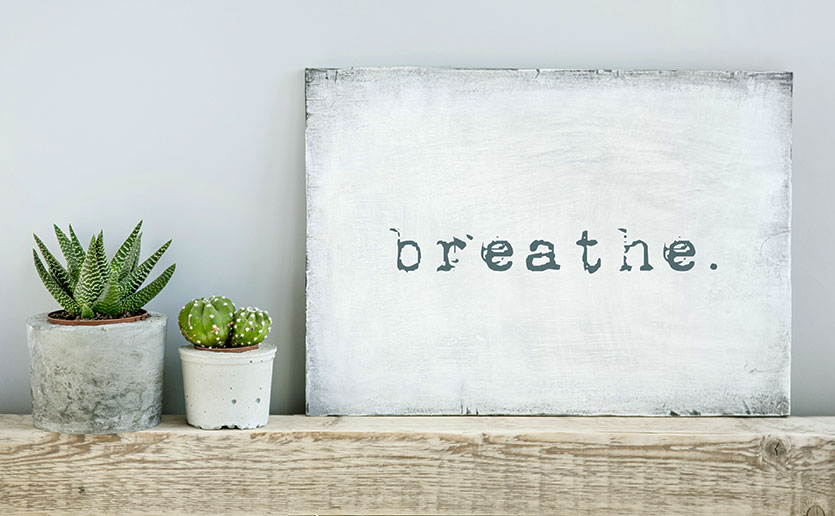Anger is a response to the perception of injustice, according to Peg Baim, MS, ANP-BC, director of the Stress Management and Resiliency Training (SMART) Program at the Benson-Henry Institute for Mind Body Medicine (BHI) at Massachusetts General Hospital. She believes that the way in which we express and learn from anger affects how stressed we feel. Inherently, people want to stop behaviors such as yelling, name-calling and getting verbally defensive.
Recently, we interviewed Ms. Baim, who has earned international recognition as a leading educator and lecturer in the field of mind body medicine. At BHI, she teaches patients self-care and interventions to help them cope with a variety of illnesses and stress-exacerbating symptoms.
“The body’s stress response is a little bit like the brain saying, ‘Houston, we have a problem.’”
How does stress impact anger?
Under the influence of stress, we often have less control over our emotions, which can cause us to respond in anger by yelling or acting defensively. A lack of sleep, especially, can lower the body’s threshold for handling stress. Other signs of stress include fatigue, racing thoughts and having a negative outlook.
What is the stress response?
The stress response is necessary for survival and is triggered when a threat is perceived, be it real or imagined. For example, an aunt criticizes your parenting and you reflexively say something negative in response. Or, someone cuts you off in traffic and you react quickly to brake, then, feel angry or anxious. During the stress response, the body releases the hormone cortisol into the blood stream, heightening the body’s alert system. Over time, these changes can burden the body by causing or worsening symptoms and illnesses. Chronic stress can even remodel the brain to respond to stress at a lower threshold.

How do you tackle the stress response?
The body’s stress response is a little bit like the brain saying, ‘Houston, we have a problem.’ All negative emotions represent stress and are signals to make a change. At BHI, we help patients build skills to understand and cope with stress. Essentially, coping consists of problem-solving which works to mitigate the source of stress, and acceptance, which works to tolerate or create positive meaning from it. Many stressful events are complicated and require both problem-solving and acceptance. With the traffic example, there is no way, really, to problem-solve bad drivers. However, understanding why this behavior exists helps us form a bond that can increase tolerance. Then, we can more easily let go of the stress. You can view strangers as potential kidney donors to your family to build a bond, or think: “We all suffer. We’re all selfish at moments.”
What does problem-solving the stress response look like?
All stress handled well is an opportunity to build coping skills and become more resilient. If a colleague says something disparaging, rather than responding with a defensive, negative comment from your stress response, ‘You don’t know what you’re talking about!’ You can say, with, respect and self-respect, “This is my perspective and understanding. We’ll just have to agree to disagree.” Since stress so easily begets stress, it’s best to work to hold your balance when approached by another who’s already stressed.
“Without enough sleep, the body can’t flush out the effects of stress from your brain.”
Are there tools to help curb angry behaviors like yelling and defensiveness?
Since the brain accumulates the inflammatory molecules of stress throughout the day, try getting enough sleep. Without enough sleep, the body can’t flush these effects of stress from your brain. New research suggests that our mood may be influenced by a gut-to-brain connection, so try a diet rich in nutrients and low in sugary and processed foods. Meditation, positive-thinking and engaging in enjoyable activities also help to counter stress and increase resilience.
Taking a deep breath, the kind that pouches out your belly, when stressed and, at intervals throughout the day, can halt the stress response and increase your ability to cope. Deep breaths activate your diaphragm to stretch and act like a piston pulling air deep into your lungs and triggering the vagus nerve, which physically turns off a portion of the body’s stress response. You can really down-regulate a considerable amount of your stress response, every time you take a full, deep, relaxed ‘belly’ breath.
How do you remind yourself to take deep breaths?
One trick is to use paper dots as visual cues in environments where you feel stressed. Stick them on your work phone or in your vehicle. When you feel stressed, look at the dot and draw a deep breath. The dots or a chirp from your smart phone can serve as gentle reminders to breathe deeply throughout the day.
To make a donation to support the Benson-Henry Institute, please contact us.
To restore balance, try this mini-relaxation exercise:
- Inhale and take a deep belly breath, while thinking to yourself: “May I be free of suffering.”
- Exhale and think: “May I be happy.”
- Repeat until you feel calmer.






